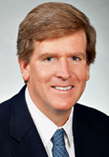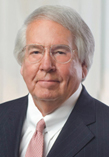This week, a potentially epic and landmark trial gets underway in a federal courtroom in Washington, D.C., pitting the mighty power of the United States government against telecommunications giant AT&T of Dallas.
A handful of Texas lawyers, including several senior in-house counsel at AT&T and partners in the Dallas office of Gibson, Dunn & Crutcher, are playing prominent roles in the litigation. Pretrial arguments take place Monday and Tuesday. The non-jury trial is scheduled to begin Wednesday and could last two months.
The U.S. Department of Justice has had about 40 lawyers involved in the prosecution of the case. AT&T and Time Warner have about 70 attorneys involved.
The issue in the case: Is AT&T’s acquisition of Time Warner for $109 billion so anti-consumer and anti-competitive that it violates federal antitrust laws?
If the DOJ convinces U.S. District Judge Richard Leon that the merger of the largest telecomm corporation in the world with one of the largest TV and movie programmers would harm competition, legal experts say it would turn antitrust law on its head and cause the M&A markets to freeze because corporate executives would be unclear on whether deals would get federal government approval.
The Trump Administration argues that the combination of the two mega-corporations would make AT&T so big and powerful in controlling content and the distribution of the content that it could potentially harm the public.

To fight the federal government, AT&T General Counsel David McAtee has hired a superstar team of legal experts, including a handful of lawyers from Texas.
When DOJ signaled last year that it would challenge the AT&T-Time Warner merger, McAtee hired lawyers from O’Melveny & Myers and Gibson Dunn. Time Warner turned to Cravath, Swaine & Moore partner Christine Anne Varney, who was the head of the DOJ’s antitrust division that permitted Comcast and NBC Universal to merge in 2011.

Three key Dallas lawyers are Gibson Dunn antitrust partners Rob Walters, Mike Raiff and Sean Royall.
Walters is the managing partner of Gibson Dunn’s Dallas office and is the former general counsel at Energy Future Holdings. McAtee and Walters have known each other for two decades, but they have never tried a case together or against each other.
McAtee has a handful of AT&T in-house counsel working on the litigation, including:
-
- Bill Drexel, an assistant general counsel at AT&T who has been with the company for nearly two decades;
-
- David Lawson, an assistant general counsel with subsidiary AT&T Services; and
-
- James Meza III, an assistant general counsel.
Lawyers familiar with the litigation say that no one should doubt that McAtee is calling the shots.

A 1994 graduate of the University of Texas School of Law, McAtee grew up in a home where law was discussed daily. His father, David McAtee Sr., was a prominent trial lawyer at Akin Gump in Dallas and is now senior counsel at Hunton & Williams.
In a 2012 interview with The Texas Lawbook, McAtee Sr. said he was preparing to argue a landmark case before the Texas Supreme Court in 1993. His client, Walmart, had been hit with a big jury verdict for gross negligence after a customer had been seriously injured when she tripped over an uneven sidewalk outside a South Texas store.
At dinner, McAtee explained the case to his son, who was then a second-year law student at the University of Texas.
“David immediately put his finger on the critical issue and he told me that the Supreme Court is going to want to know why it should not be considered gross negligence when it would have cost Walmart only a few dollars to repair the sidewalk,” said McAtee Sr. “My son was exactly right. The justices focused on that exact question and it was the key to us winning the case.”
McAtee II practiced antitrust litigation for more than 16 years at Dallas-based Haynes and Boone, where he represented AT&T in several disputes.

In 2011, long-time AT&T General Counsel Wayne Watts called McAtee to have lunch at the Crescent Club.“David, I didn’t ask you to lunch for your sparkling personality,” McAtee recalls Watts saying.
“Wayne created a position for me that didn’t previously exist,” McAtee said. “After all the mergers, he was trying to integrate his litigation team but they were split up under all the different companies.
“Wayne said the problem was, there wasn’t ‘one throat to choke,’” he said, quoting Watts. “There was no one person to hold responsible. You know, I’m not sure he ever actually offered me the job. He just made it known that it was me.”
McAtee joined AT&T in 2012 to lead the telecom giant’s litigation section and then became its chief legal officer when Watts retired in 2015.
